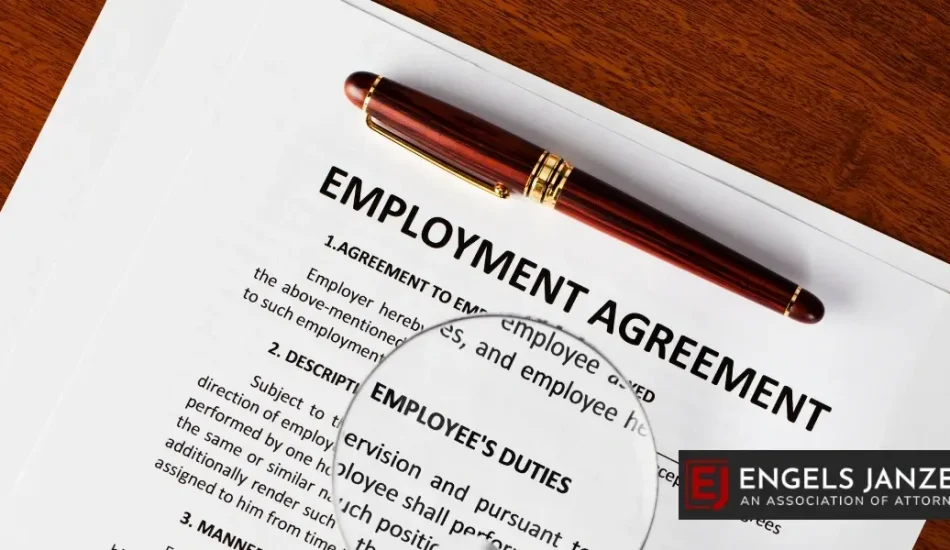What provisions in an employment agreement can be unlawful?

Employment agreements can have a wide range of variations, usually based on the position, the job description and other essential details that can impact the role. These contracts can also include confidentiality and non-disparagement clauses. Including these provisions can be reasonable, but they can be unlawful in specific circumstances.
Some conditions or provisions in an employment agreement can violate or infringe on employee rights, potentially warranting legal action. Based on the situation, the following clauses can be unlawful:
- Provisions prohibiting employees from sharing information about unlawful harassment and discrimination in the workplace
- Conditions requiring employees to revoke claims for their employment and other work incentives, such as bonuses or wage increase
- Statements asserting that employees have no losses or claims involving their employer
- Clauses making employees give up their rights to file suits or complaints against the employer
Sometimes, these confidentiality clauses can be fair, especially if working with complaints, claims and cases is part of the job. However, if the purpose of these provisions is to keep employees from taking legal action or revealing unlawful practices, they can be illegal.
Addressing unlawful clauses in an employment agreement
Taking time and understanding an agreement before signing it can be beneficial. These documents can be lengthy and complex for an employee, requiring time and effort to review the contract thoroughly. When in doubt, seeking legal counsel could help, especially if the role has unique duties that require additional statements and provisions.
Employers can also benefit from legal guidance when drafting an employment contract, allowing them to add and remove clauses without violating laws.
Contact Our Firm By Filling Out The Online Contact Form Or By Calling
Request A
Free Consultation
"*" indicates required fields
© 2025 Engels-Janzen. All rights reserved.
Disclaimer | Site Map | Privacy Policy Digital Marketing By 

